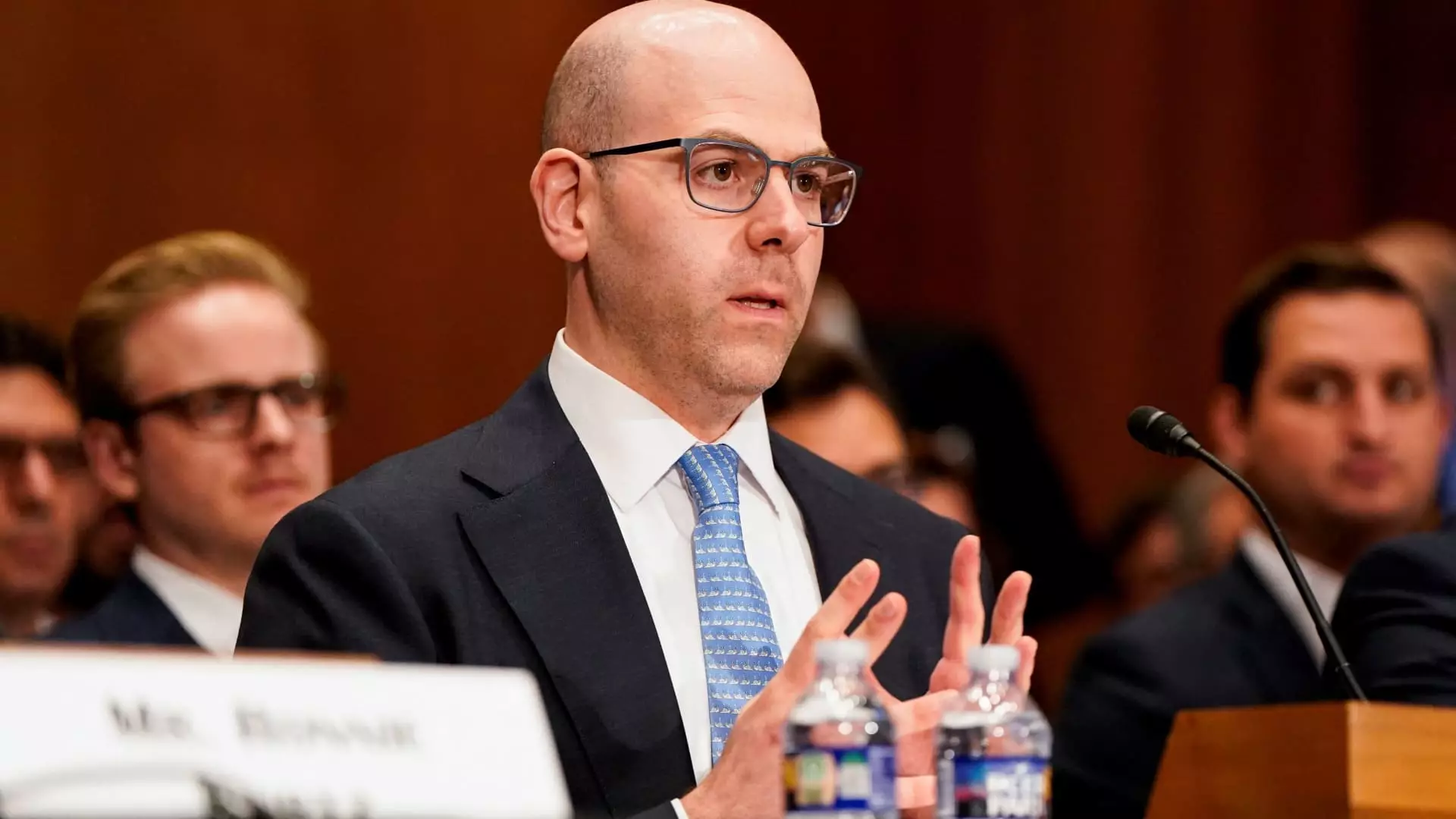The Federal Reserve operates under the guise of independence, a principle that supposedly insulates monetary policy from political pressures. Yet, recent events hint at a different reality—one where political influence, whether overt or subtle, threatens to undermine this vital autonomy. While Fed officials often insist they make decisions free from external meddling, the dynamics surrounding Governor Stephen Miran’s stance highlight troubling contradictions. Miran’s public statements and voting behavior underscore a complex web of independence and external influence that deserves critical scrutiny.
His refusal to be swayed by President Donald Trump’s overt criticisms, coupled with his statement that he made his monetary policy vote independently, might appear to uphold the Fed’s independence. However, the context clues reveal underlying tensions. Miran’s decision to oppose the majority’s move for a modest rate cut, preferring a larger slice, signals an internal resistance to external pressures—whether from the White House or the broader political environment. His willingness to openly diverge from colleagues, including the median projections, suggests a desire to assert a degree of personal independence, but the question remains: how much autonomy can policymakers truly retain when their decisions are scrutinized through a political lens?
Furthermore, Miran’s statement that he would resign if told to stay in his position beyond the current term emphasizes the fragility of institutional independence. It implies that external influences could, at any moment, threaten to override the judgment of policymakers who believe they are acting in the best interest of the economy. This situation erodes public trust and raises the specter of a central bank that is more reactive than autonomous—something citizens should scrutinize with skepticism.
Political Interference and Its Threat to Economic Stability
The Trump administration’s relentless push for lower interest rates, often expressed through public criticisms and personal attacks on key figures like Chair Jerome Powell, demonstrates a blatant attempt to sway an institution that is supposed to be insulated from political cycles. This behavior raises profound questions: Is the Federal Reserve genuinely making decisions based on economic data, or is it increasingly beholden to political whims? When presidents openly call for rate cuts while attacking the Fed publicly, the line between independent decision-making and political influence becomes dangerously blurred.
This erosion of independence is not a mere perception but has tangible implications. If the Fed succumbs to political pressure, the very tools it uses to stabilize the economy—interest rate adjustments—risk becoming hostage to the electoral calendar rather than economic fundamentals. Such a shift could lead to short-term mania, asset bubbles, or delayed responses to economic downturns. The danger lies in turning monetary policy into a political football, undermining the credibility of the institution and potentially destabilizing markets that rely on its neutrality.
Moreover, the administration’s attempts to influence staffing decisions at the Fed—such as seeking to oust Governor Lisa Cook—very clearly signal efforts to install allies inclined toward easing policy. This tactic endangers the separation of powers and fuels doubts about the integrity of the institution. Miran’s comments reflect a conscious and deliberate effort to maintain his independence amidst these external pressures, but not everyone in the political arena will necessarily respect such boundaries.
The Balance of Power and the Future of Central Bank Credibility
In an environment where political narratives increasingly threaten the Fed’s independence, the core question is whether the institution can still be trusted to prioritize long-term economic stability over fleeting political gains. Miran’s outspoken stance and willingness to speak detailed reasons for his vote highlight the importance of transparency. Yet, transparency alone cannot compensate for the underlying political currents that seek to influence these decisions behind the scenes.
The broader implications for the economy are unsettling. If the Fed becomes perceived as a political extension rather than a neutral arbiter, its effectiveness diminishes. Markets thrive on predictability and independence; undermining these makes planning and investment more uncertain. Citizens, too, must question whether the economic policies they see are genuinely rooted in data and expertise, or if they are the product of political theater.
Ultimately, the struggle for the Fed’s independence is emblematic of a larger tension between democratic accountability and economic expertise. While one can argue that a degree of political oversight is necessary for accountability, it must be balanced carefully. The risk is that losing faith in the Fed’s autonomy could lead to a cycle of politicized economic policymaking, which undermines democratic institutions and jeopardizes future economic stability.

